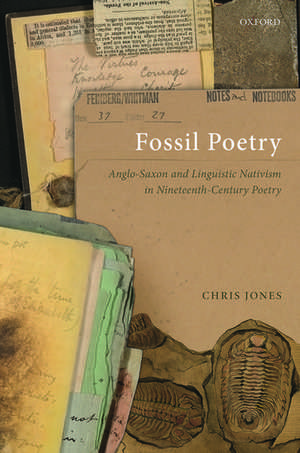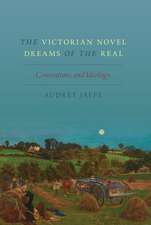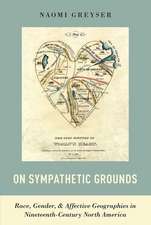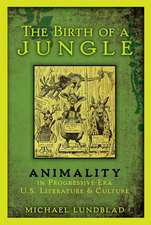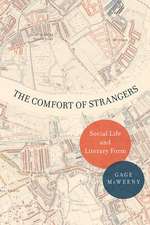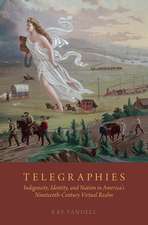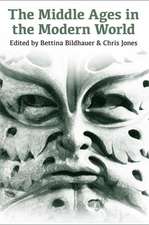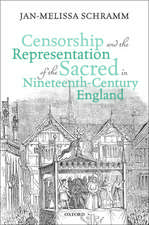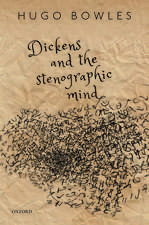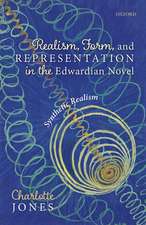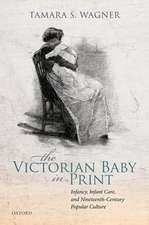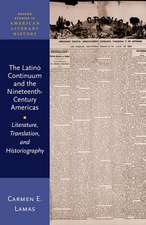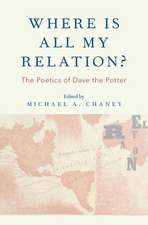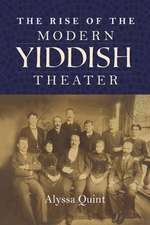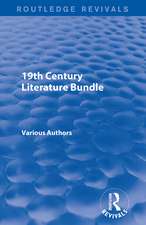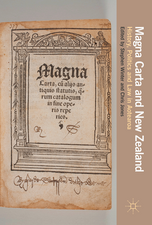Fossil Poetry: Anglo-Saxon and Linguistic Nativism in Nineteenth-Century Poetry
Autor Chris Jonesen Limba Engleză Hardback – 24 aug 2018
Preț: 519.13 lei
Preț vechi: 741.35 lei
-30% Nou
Puncte Express: 779
Preț estimativ în valută:
99.36€ • 102.40$ • 83.88£
99.36€ • 102.40$ • 83.88£
Carte tipărită la comandă
Livrare economică 20-26 februarie
Preluare comenzi: 021 569.72.76
Specificații
ISBN-13: 9780198824527
ISBN-10: 0198824521
Pagini: 328
Dimensiuni: 163 x 242 x 27 mm
Greutate: 0.66 kg
Editura: OUP OXFORD
Colecția OUP Oxford
Locul publicării:Oxford, United Kingdom
ISBN-10: 0198824521
Pagini: 328
Dimensiuni: 163 x 242 x 27 mm
Greutate: 0.66 kg
Editura: OUP OXFORD
Colecția OUP Oxford
Locul publicării:Oxford, United Kingdom
Recenzii
The great value of Jones' book is that it demonstrates the complexity of the place of Anglo-Saxon in nineteenth-century poetry in English. It will take some time for the discipline to come to terms with that complexity. Jones' careful scholarship and revelatory archival research will contribute much to that work to come.
Even among the writers selected, the web of who read whose works is difficult to track. Jones navigates this fecundity admirably, constructing a coherent narrative whilst remaining sensitive to the nuances of how individual writers responded to their imagined literary heritage. In doing so, he works to recover the nineteenth-century legitimacy of ideas that now seem absurd, such as the conviction that Romances and rhyming were of Anglo-Saxon origin.
[This book] provides a welcome exploration of the influence of Old English language and verse on Victorian poetry. [...] Throughout Fossil Poetry, Jones shows a sensitive and thorough approach to the influence of Anglo-Saxon studies on the Victorian imagination, considering it in the light of nineteenth-century context and relevance.
Fossil Poetry is an enlightening account of disciplinary formation, reminding present-day researchers of the postmedieval historicity of our objects of study. Jones brings out beautifully "the inventedness of the past". [...] Nineteenth-century specialists will have to heed this book, because Jones knows things they do not know.
Fossil Poetry displays exemplary close reading and a skilful command of rhetorical, metrical, and philological analysis. . . . In addition to rigorous and original scholarship, this book has pressing significance: as Jones writes, 'Investigating the Anglo-Saxon poetries produced by the nineteenth century ought to help us reflect on what kind of Old English poetry we are manufacturing in our own moment, as well as on what kind of Englishnesses' (p. 33). If 'the past is provisional, ongoing, and retold in the light of contemporary concerns' (p. 272) then we have cause to be grateful for any account of it that is as subtly perceptive, deeply learned, and consistently generous as this book.
Even among the writers selected, the web of who read whose works is difficult to track. Jones navigates this fecundity admirably, constructing a coherent narrative whilst remaining sensitive to the nuances of how individual writers responded to their imagined literary heritage. In doing so, he works to recover the nineteenth-century legitimacy of ideas that now seem absurd, such as the conviction that Romances and rhyming were of Anglo-Saxon origin.
[This book] provides a welcome exploration of the influence of Old English language and verse on Victorian poetry. [...] Throughout Fossil Poetry, Jones shows a sensitive and thorough approach to the influence of Anglo-Saxon studies on the Victorian imagination, considering it in the light of nineteenth-century context and relevance.
Fossil Poetry is an enlightening account of disciplinary formation, reminding present-day researchers of the postmedieval historicity of our objects of study. Jones brings out beautifully "the inventedness of the past". [...] Nineteenth-century specialists will have to heed this book, because Jones knows things they do not know.
Fossil Poetry displays exemplary close reading and a skilful command of rhetorical, metrical, and philological analysis. . . . In addition to rigorous and original scholarship, this book has pressing significance: as Jones writes, 'Investigating the Anglo-Saxon poetries produced by the nineteenth century ought to help us reflect on what kind of Old English poetry we are manufacturing in our own moment, as well as on what kind of Englishnesses' (p. 33). If 'the past is provisional, ongoing, and retold in the light of contemporary concerns' (p. 272) then we have cause to be grateful for any account of it that is as subtly perceptive, deeply learned, and consistently generous as this book.
Notă biografică
Chris Jones teaches at the University of St Andrews. His previous book Strange Likeness: The Use of Old English in Twentieth-century Poetry (OUP, 2006) was shortlisted for the ESSE best book prize of 2007.
